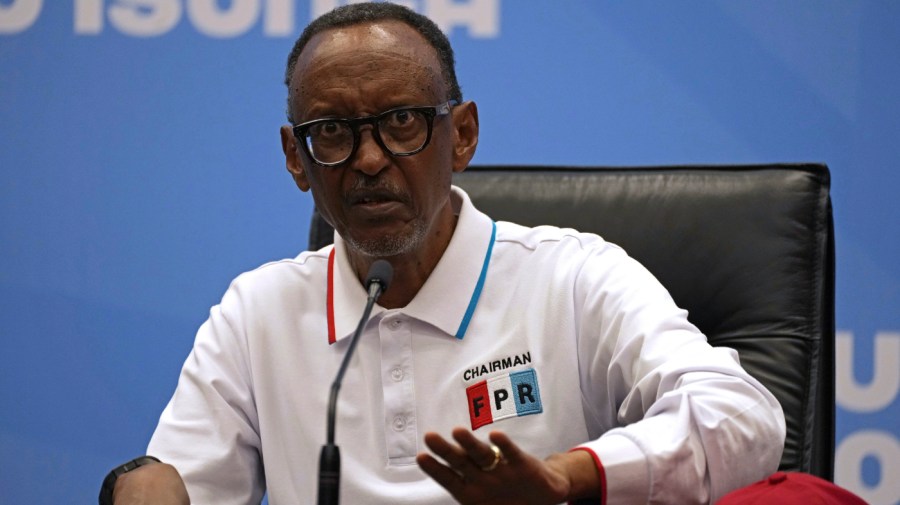
When I joined the United Nations-backed International Criminal Tribunal for Rwanda as a judicial legal advisor in 2007, I was filled with hope for justice and a safer future. We aimed to hold accountable those behind the 1994 Rwandan genocide.
But my confidence waned as we only pursued Hutu-led former government members, undermining impartiality. Rwandan officials prevented investigations into the Rwandan Patriotic Front, led by commander and future President Paul Kagame, despite their significant atrocities against civilians. Nearly two decades later, I grapple with the realization that, rather than break the cycle of violence, we may have inadvertently contributed to the rise of a new tyranny.
President Kagame, once celebrated as a liberator who ended the 1994 genocide, has evolved into a figure who wields power with an iron grip, suppressing dissent and leveraging the genocide narrative to cement his rule.
His government’s recent actions in the Democratic Republic of Congo, supporting the M23 rebel militia in its capture of the eastern city of Goma, mirrors a dangerous global pattern of regional destabilization under the guise of national security.
While the seizure of Goma — pulsing with millions of souls and rich in minerals critical to global industries — risks spiraling into a full-scale cross-border war, Kagame’s regime seeks to stifle and annihilate any form of political dissent at home.
Victoire Ingabire’s ordeal is emblematic of this. On returning to Rwanda in 2010, after 16 years in exile, with hopes of cultivating a genuine democracy, Ingabire called for inclusive remembrance of all victims of Rwanda’s violent history, regardless of ethnicity. This drew the ire of a government that tolerates no challenge to its version of history.
Ingabire’s subsequent arrest, trial, convictions on spurious charges of terrorism and genocide denial, and her unjust 15-year prison sentence, have been widely criticized as politically motivated.
Her latest attempt to run for president in Rwanda in July 2024 was thwarted when the Rwandan High Court upheld a legal ban preventing her from running due to her previous convictions. Although she was pardoned in 2018, the court ruled that she remained ineligible to run because the limitations imposed by her pardon had not yet expired.
Now, the threat of rearrest (or worse) looms large as Ingabire’s pardon period ends in August 2025. In recent speeches, Kagame has ominously warned democracy advocates like Ingabire that “their days are numbered,” explicitly stating that “those who must be corrected, we correct them.”
This rhetoric, suggesting imminent actions against Ingabire, is part of a pattern: Kagame has previously insinuated that she “will not end up well” and that the government “would find an appropriate solution” for her.
In my view, this is evidence of how selective justice at the tribunal has had long-lasting implications. It emboldened Kagame’s government and entrenched a narrative whereby any criticism of the Rwandan Patriotic Front is tantamount to genocide denial.
The most obvious parallel in modern geopolitics is the case of Russia’s assault on Ukraine, backed by twisted narratives based on revisionist history — indeed, the Economist headline was “Rwanda does a Putin in Congo.” Both Putin and Kagame seem motivated by various manifestations of greed and hubris.
This highlights a troubling global trend: leaders who exploit past traumas and conflicts as tools for maintaining power. The despots’ actions not only destabilize their regions but also threaten to ignite broader conflicts, leveraging historical grievances and security narratives to suppress internal dissent and justify aggressive expansions. The international community’s response, often muted by geopolitical considerations, fails to adequately address the resulting atrocities.
The world must confront this head-on: There is a pattern of nations whose difficult histories have resulted in authoritarian governments peddling grievance. Only by acknowledging and addressing these complexities can we hope to support paths forward anchored in justice, respect for human rights, and true governance under the rule of law.
The international community must recalibrate its approach and prioritize the restoration of genuine democracy in Rwanda to ensure stability in the Great Lakes region.
As for Putin, of course, saving Russia from the grip of his cabal is one of several Holy Grails in geopolitics that lie ahead.
Sheila Paylan is a human rights lawyer and senior legal consultant with the United Nations.












